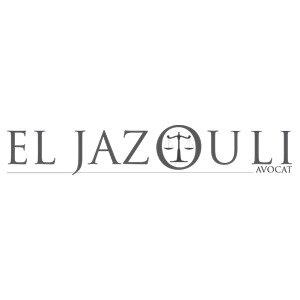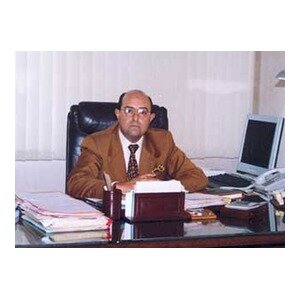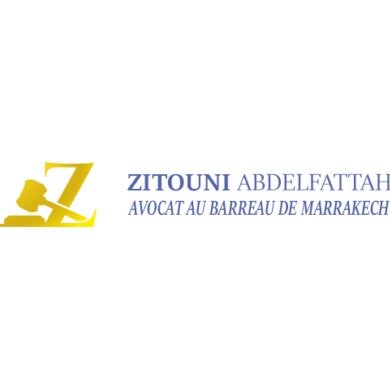Best Project Finance Lawyers in Marrakesh
Share your needs with us, get contacted by law firms.
Free. Takes 2 min.
List of the best lawyers in Marrakesh, Morocco
About Project Finance Law in Marrakesh, Morocco
Project finance in Marrakesh, Morocco, represents a specialized field of law that governs the structuring, funding, and operation of large-scale infrastructure and industrial projects. These typically include developments such as renewable energy plants, public infrastructure (like roads and hospitals), and commercial real estate. Project finance is distinct in that it often involves significant capital investment and complex, multi-party arrangements, where loan repayments are primarily sourced from the cash flows generated by the project itself rather than the assets or creditworthiness of the sponsors. In Marrakesh, as in the rest of Morocco, this area of law blends aspects of finance, corporate, and regulatory frameworks tailored to regional economic development priorities.
Why You May Need a Lawyer
Engaging a lawyer in project finance can be crucial for several reasons. The process of structuring a project finance deal involves negotiation of detailed contracts, risk allocation, compliance with Moroccan regulatory requirements, and often, international considerations. Here are some common scenarios where legal advice is needed:
- Drafting and negotiating loan and security agreements with banks or financial institutions
- Ensuring compliance with local laws and regulations governing project approvals and licenses
- Addressing land acquisition and environmental assessment issues
- Structuring joint venture partnerships with Moroccan and foreign investors
- Mitigating risks related to project delays, cost overruns, or force majeure events
- Advising on public-private partnerships (PPPs), concessions, and Build-Operate-Transfer (BOT) contracts
- Resolving disputes that may arise during project construction or operation
Local Laws Overview
Moroccan law offers a robust legal framework for project finance, influenced by both civil law principles and international best practices. In Marrakesh, key regulations include the Moroccan Commercial Code, laws governing public procurement, and sector-specific regulations for energy, transport, and infrastructure projects.
A significant feature is the PPP Law (Law No. 86-12), which facilitates cooperation between the public and private sectors in major projects. Environmental and land use regulations are also highly relevant, particularly for projects with significant social or ecological impact. Taxation, foreign investment controls, and currency exchange regulations may also affect project finance deals, especially those involving international entities.
Traditionally, Moroccan courts uphold the enforceability of contracts and security agreements, and there is growing recourse to arbitration for resolving complex project disputes. Investors must also pay attention to requirements applying to foreign loans, repatriation of profits, and the need for approvals from governmental bodies such as the Ministry of Finance or sector-specific authorities.
Frequently Asked Questions
What is project finance?
Project finance is a method of funding large-scale projects, where lenders rely on the future cash flows of the project for repayment rather than the general assets or credit of the project sponsors.
What types of projects are commonly financed in Marrakesh through project finance structures?
Projects involving renewable energy (such as solar and wind), transportation infrastructure, water treatment facilities, hotels, and large commercial developments often use project finance mechanisms in Marrakesh.
What role do international investors play in project finance deals in Marrakesh?
International investors frequently participate in Moroccan project finance, bringing in capital, expertise, and advanced technology, often in partnership with local entities under Moroccan law.
Are there regulatory limitations on foreign investment in project finance in Morocco?
While Morocco encourages foreign investment, certain approvals and declarations are required, particularly regarding currency exchange, repatriation of profits, and acquisition of land by foreign entities.
How are risks typically allocated in a project finance transaction?
Risks are allocated contractually between parties, with lenders, sponsors, contractors, and sometimes public authorities each assuming defined responsibilities for construction, operation, finances, and external factors.
How is security for lenders structured in Moroccan project finance?
Lenders usually require security interests over project assets, shares, and cash flows. Moroccan law facilitates several forms of security, including mortgages, charges, and assignment of receivables.
What are the main legal agreements involved in a project finance deal?
Key agreements include the loan agreement, security documents, project contracts (such as construction and operations agreements), shareholder or joint venture agreements, and government licenses or concessions.
What happens if a project fails or becomes insolvent?
If a project defaults, the lenders typically have recourse to the project assets and associated collateral under Moroccan insolvency law, subject to the terms of the security agreements.
Is dispute resolution through arbitration recognized in Moroccan project finance?
Yes, arbitration is commonly used, especially in large international deals. Moroccan courts generally uphold arbitration clauses, and Morocco is a signatory to the New York Convention on the recognition of arbitral awards.
Do project finance lawyers in Marrakesh handle environmental and social compliance issues?
Yes, legal advisors are often needed to ensure that the project complies with environmental, social, and permitting requirements, which are strictly enforced for large-scale developments in and around Marrakesh.
Additional Resources
If you need further guidance or information on project finance in Marrakesh, the following resources may be helpful:
- Moroccan Ministry of Economy and Finance - for regulatory and fiscal matters related to project finance
- Moroccan Investment and Export Development Agency (AMDIE) - for investment regulations and incentives
- Morocco’s Office National de l’Electricité et de l’Eau Potable (ONEE) - for energy and utility projects
- Marrakesh Regional Investment Center (CRI Marrakech-Safi) - for local project approvals and support
- Professional bodies such as the Moroccan Bar Association for lawyer referrals
Next Steps
If you require legal assistance with a project finance matter in Marrakesh, consider the following steps:
- Clearly define your project scope, objectives, and the parties involved
- Gather all relevant documents (project business plan, contracts, regulatory correspondence, etc.)
- Research and contact lawyers or law firms specializing in project finance in Marrakesh
- Prepare a list of questions or concerns to discuss with your legal advisor
- Arrange an initial consultation to evaluate your options, legal risks, and the optimal structure for your project
- Follow legal recommendations to ensure compliance with Moroccan laws, secure necessary permits, and protect your interests throughout the project lifecycle
Lawzana helps you find the best lawyers and law firms in Marrakesh through a curated and pre-screened list of qualified legal professionals. Our platform offers rankings and detailed profiles of attorneys and law firms, allowing you to compare based on practice areas, including Project Finance, experience, and client feedback.
Each profile includes a description of the firm's areas of practice, client reviews, team members and partners, year of establishment, spoken languages, office locations, contact information, social media presence, and any published articles or resources. Most firms on our platform speak English and are experienced in both local and international legal matters.
Get a quote from top-rated law firms in Marrakesh, Morocco — quickly, securely, and without unnecessary hassle.
Disclaimer:
The information provided on this page is for general informational purposes only and does not constitute legal advice. While we strive to ensure the accuracy and relevance of the content, legal information may change over time, and interpretations of the law can vary. You should always consult with a qualified legal professional for advice specific to your situation.
We disclaim all liability for actions taken or not taken based on the content of this page. If you believe any information is incorrect or outdated, please contact us, and we will review and update it where appropriate.














